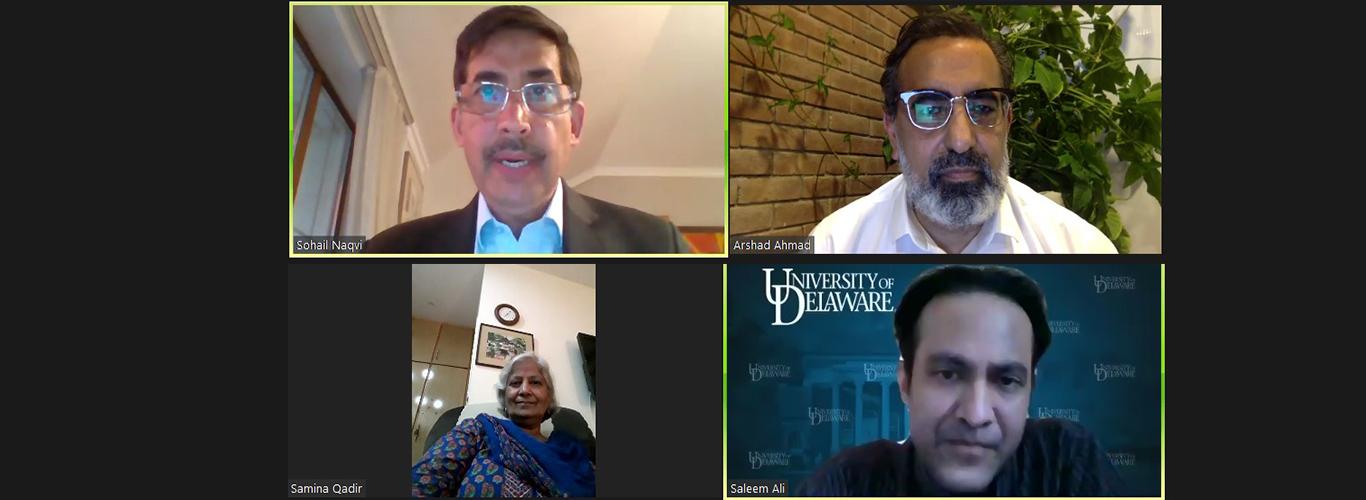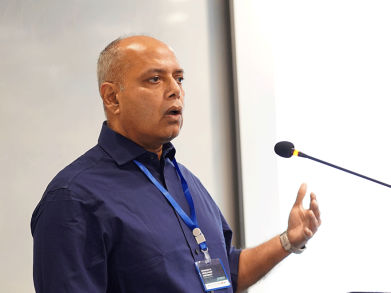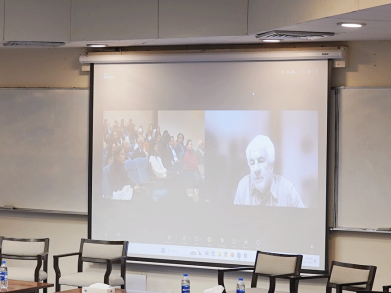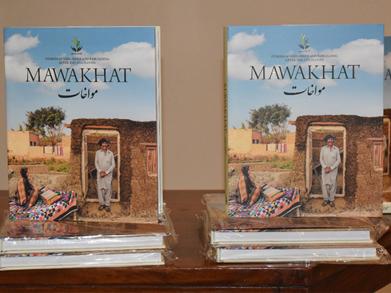LUMS Vice Chancellor Discusses Pakistan’s Higher Education Landscape in Webinar Organised by American Pakistan Foundation
At a webinar discussing the opportunities and challenges associated with higher education in Pakistan, Vice Chancellor, LUMS, Dr. Arshad Ahmad, explained that as caretakers of the Pakistani youth, it is imperative for educational institutions to uphold certain standards of quality in teaching and research.
The webinar was organised by the American Pakistan Foundation (APF) that works towards building bridges between Pakistan and the USA through initiatives that include cultural, professional, and intellectual exchanges.
Joining Dr. Ahmad were Dr. Samina Qadir, the former Vice Chancellor (VC) of Fatima Jinnah University and Dr. Sohail Naqvi, the VC of the Agha Khan Foundation's Central Asia University and former VC, LUMS. APF President's Circle member and University of Delaware professor, Dr. Saleem H. Ali moderated the discussion.
Dr. Ahmad stressed that quality must always precede quantity in this domain. “Whether it is research, or teaching, the underlying assumption we make for the academic enterprise to flourish is that you have to think of productivity in terms of merit. Otherwise, you’ll end up with a proliferation of universities, which we have.”
He also stressed the need to avoid shortcuts. “You can’t leapfrog into a business by taking shortcuts, and build these universities with a handful of professors. You’ve got the university, but you don’t have the biggest asset, which are the faculty members. Faculty are sparse, and the quality quotient is quite laughable in most of the universities. It’s not the case everywhere, but in the majority that is the situation.”
With regards to balancing the quality and quantity of higher education degree production in Pakistan, Dr. Naqvi shared some interesting statistics. “When Pakistan started looking at higher education in early 2000s, we had hardly 2.5% of the age cohort of 17 – 23 year olds in universities or as a part of the higher education sector. This was a disaster, because we’re looking at our competitors, in terms of progress, and countries are looking at 90% of the cohort in this age group.”
Quantity was a key concern, and with it came the issue of quality, he added. Therefore, the Higher Education Commission (HEC) formulated a strategy that had three pillars: access, quality and relevance.
For Dr. Qadir, the biggest concern is class segregation or divide in society for students with regards to the quality. “There is no monitoring, and no evaluation of the teaching quality. The curriculum is prepared by the HEC, recommended by the HEC, but the best curriculum given to an incompetent teacher will go to waste. The quality of education is going to be a big question mark.”
Dr. Ahmad also spoke about the need for the Pakistani academic diaspora to help academics in Pakistan. “As someone from the Canadian diaspora, there is a certain perception of Pakistan and a hesitation. A lot of these went away when I came back. It’s a beautiful country and if not for the academics, come for the geography and discover Pakistan.”
He reiterated that when it comes to higher education, Pakistan has a lot to offer. “In particular, we have raw data on just about anything. Climate change is the subject of the world and in Pakistan, you can see every microclimate you can imagine and the impact of pollution and scarcity of resources. Pakistan is a living laboratory. It has good quality data and great people who are interested to work with you,” he concluded.
To watch the webinar, click here.






















